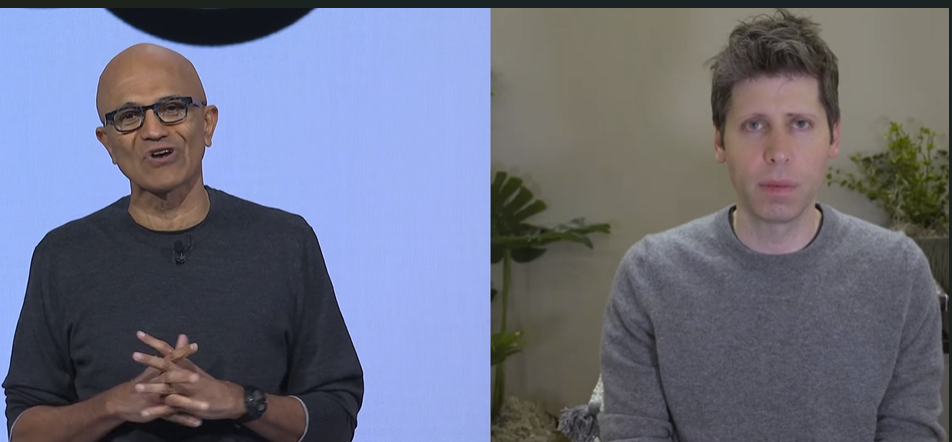OpenAI vs. Microsoft: Why a breakup could be good
OpenAI and Microsoft are going to be rivals as the companies increasingly appear to be tilting away from the frenemy and partner model that has paid off so well for both companies.
A year ago, we riffed on the growing debate about whether OpenAI and Microsoft were symbiotic or becoming frenemies. Based recent news, it appears the two companies may be blowing right past frenemies to become rivals.
Here's a recap of what has transpired in recent days:
- The Financial Times reported that Microsoft was prepared to walk away from OpenAI talks if they can’t agree on critical issues. Microsoft has access to OpenAI’s technology until 2030.
- The Wall Street Journal reported that OpenAI and Microsoft tensions are boiling over. OpenAI wants to lesson Microsoft's distribution power over its AI portfolio and get buy-in on a plan to convert from a non-profit and go public.
- OpenAI CEO Sam Altman is chasing superintelligence--much to Mark Zuckerberg and Meta's chagrin--and needs more compute. Reuters reported that OpenAI was even in talks with Google Cloud for capacity. OpenAI already leverages Oracle Cloud Infrastructure and Microsoft Azure, which used to exclusively provide infrastructure to the LLM giant.
- OpenAI's enterprise business is surging as companies buy direct for LLMs and AI agents, said Altman at Snowflake Summit 2025. OpenAI recently landed a deal with Mattel and has launched OpenAI for Government. Those two efforts were just the latest in a long line of enterprise deals with Lowe's, Booking.com and Wayfair.
- The body language between a video interview between Microsoft CEO Satya Nadella and Altman at Build was uncomfortable. For its part, Microsoft has been developing its own models to lessen its dependence on OpenAI. It wouldn't be the least bit surprising to see Copilot get a model transplant.
Individually, these headlines don't necessarily mean that OpenAI and Microsoft are veering to a messy divorce. And even if the breakup is messy both companies have raked in dough and will pocket billions of dollars. The two companies are the best technology partnership ever.

A few thoughts:
- In the long run, Microsoft diversifying its models available on its platform is critical. Microsoft Azure AI Foundry has more than 1,900 models, but is still associated with OpenAI.
- From the OpenAI perspective, a glidepath away from Microsoft makes sense. The companies will compete for enterprises, agentic AI dominance and industry services. And lesser businesses such as search will feature OpenAI vs. Microsoft too.
- Enterprise buyers will benefit from a breakup too. I use both OpenAI ChatGPT and Microsoft Copilot (as well as Grok, Google Gemini and Anthropic Claude) and the Microsoft-OpenAI partnership remind me of Samsung and Android. The former puts layers on top of the original and gums up the experience.
Holger Mueller, an analyst at Constellation Research, said:
"Nothing lasts forever, and that applies as well to the special relationship between OpenAI and Microsoft. Apparently, Microsoft doesn't want to spend the capital to run OpenAI exclusively. Sam Altman has been looking for alternative sources to pay for the capacity needed for open AI to run its ever more hungry models. And it looks like Oracle is going to get a chunk of that business. In the meantime, Microsoft is betting on its new in-house chip architecture. Time will tell if this was a premature breakup or not."

